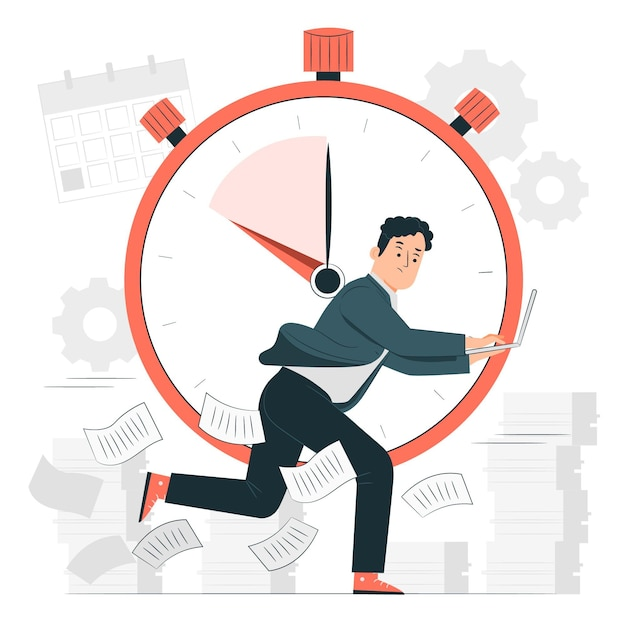9 Tips to Be a Highly Productive Researcher

Highly Productive Researcher
According to a survey, 80% of researchers feel overwhelmed at work. It’s no wonder. Excessive brain work eats up all your energy and makes you slower. But you can change it by following a few tips.
You can take productivity of a scholar if you can bring small changes in your life every day. That’s why today I’m writing this blog to provide you with a few effective tips so that you can be productive at work.
How to Be a Productive Scholar?
Here are the tips. Let’s have a look –
Start as soon as possible
Often you work on tasks that have longer deadlines. So, you procrastinate and think will do it later. It is the most terrible blunder you do with yourself because time flies, and you don’t understand how. This is why you should start working on your assignment as soon as you get it. Don’t hold your tasks to the last minute. Know your limits and start early. Make it a habit and see how it changes your productivity level.
For example, if you are working on a project and still unable to gather all the data, make an outline of your work. Do something. Don’t sit idle. The small efforts you provide right now will bridge up and results in excellent research work.
Plan your schedule
Planning is everything. If you can maintain a to-do list regularly, it will affect your productivity level immensely, obviously in a positive way. So use your free time and plan everything beforehand. You can follow a daily or weekly plan, whatever suits you best.
This way, you can start each day with new energy and reach your goal step by step. So, you don’t have to take extra headaches to finish your task within the given timeframe.
Remember one thing – Being organized is the prime element of productivity. So, take a pen and paper and start planning your tasks. Researchers who work on public finance agree with this tip.
Start with the most challenging task
Avoiding the most boring or challenging tasks actually has no use. Instead, you should start with them. For example, start with the most complicated experiment you have been avoiding for a long time. Completing these tasks will give you another level of relief that will encourage you to work more.
So, start with the tasks that seem most boring or difficult to you and notice the change in your concentration level after finishing those.
Set your goals
Before starting to do an experiment or task, set a SMART goal. So now the question is – what is a SMART goal?
S for Specific
M for Measurable
A for Attainable
R for Realistic
T for Time-oriented
A fixed goal will always help you focus and be productive, and a SMART goal will compel you to fulfill it. So if you have something big in mind, break it into small pieces and try to reach one piece at a time.
In addition, don’t forget to reward yourself after reaching a goal you set earlier. It will encourage you for more and hold you strong.
Find a supportive partner
Often, working alone makes us slower. But having a supportive partner (friend, colleague, etc.) can help you to stay motivated and truthful about your goal. They check on your progress and don’t let you procrastinate so that you can fulfill your experiment and taste success.
Prioritize your tasks
If you are researching something, you have a lot to do. So, you have to prioritize your tasks. You can’t do everything altogether. So, take your time and think about the most important and urgent task. Then, finish that faster. If you face difficulties in prioritizing your tasks, ask for help.
Limit your distractions
It is impossible to avoid distractions from being a part of this chaotic world. But, unfortunately, today, distraction is part of our life. Your smartphone notifications to a loud neighborhood – everything can badly impact your concentration.
So, if you can’t avoid distractions, try to limit them. Here’s how –
- When working, switch off your smartphone and put it aside from your sight.
- You can’t control the limitless energy of your neighbors or colleagues. So, find a calm workspace.
- If everything is out of your hand, invest in a pair of good noise-cancellation headphones and play Lo-Fi music while working to eliminate outside distractions.
Take care of yourself
Often, researchers get trapped in the long working hour cycle to finish their work quickly. But it provides quite the opposite results. It costs their personal well-being.
Remember, hard work is not everything all the time. Your body and mind need enough rest to work effectively unless you will end up being overstressed, which can cause chronic health problems over time.
So, nurture yourself if you want to see a proud and productive scholar in the mirror. Healthy eating, regular exercising, and sleeping at least 8 to 9 hours will help you to be more attentive to your work.
According to a study in 2017, taking small breaks increases productivity levels. Finding more innovative ways to finish your tasks and self-care will assist you.
Final Thoughts,
That’s all. Follow these tips carefully and think about how to make them your habit. Implementing these tips will allow you to be a productive researcher or scholar. So, go ahead and start doing them. All the best for your career!







